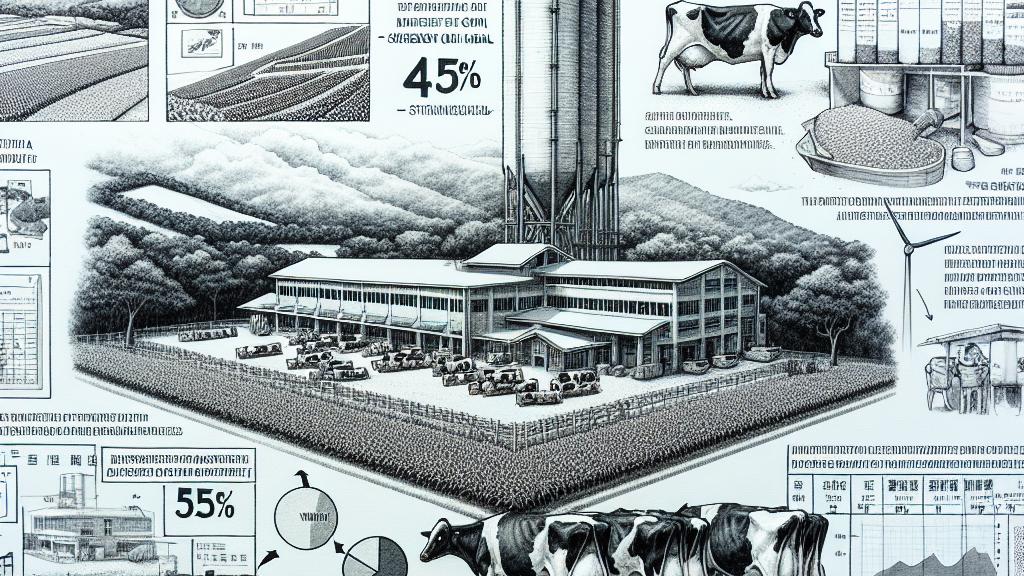Innovative Feed Formula Reduces Dairy Cow Emissions in Taiwan
Overview
- Taiwan Livestock Research Institute pioneers a groundbreaking feed adjustment.
- Achieved a significant 4.5% reduction in greenhouse gas emissions, all while maintaining milk production output.
- Embracing agricultural by-products showcases an inspiring model of sustainability in dairy farming.

Taiwan's Vision for Sustainable Dairy Farming
In Taiwan, the Livestock Research Institute has embarked on a remarkable journey towards sustainability by ingeniously adjusting dairy cow feed formulas. This innovative strategy led to an impressive 4.5% reduction in annual carbon dioxide equivalent emissions—a critical step in combating climate change. By fine-tuning the ratio of corn to soybean oil meal, and gradually lowering the protein content from 18% to 15%, researchers have beautifully demonstrated that it’s entirely possible to achieve environmental sustainability without sacrificing milk production. This bold initiative stands as a testament to the idea that economic viability and ecological responsibility can flourish side by side.
Health Benefits for Cows and the Planet
The ramifications of this revolutionary feed go beyond merely reducing emissions; they also bring about significant health benefits for the dairy cows themselves. By reducing protein intake, the formula effectively minimizes nitrogen discharge, thereby decreasing the production of nitrous oxide—an often underestimated contributor to greenhouse gas emissions. Healthier cows can yield even better milk over time, exemplifying a brilliant win-win scenario. In a world where livestock contributes dramatically to global emissions, Taiwan's initiative serves as a shining example. It shows that local innovations can resonate across borders and contribute to a healthier planet.
Turning Waste into Opportunity: The Role of Agricultural By-products
One of the standout features of this innovative feeding strategy is the clever incorporation of agricultural by-products such as brewer's grains and even discarded fruits like pineapple skins and lemon peels. This resourceful approach not only reduces waste but creates a nutritionally rich diet for the cows, allowing farmers to maximize the potential of what would otherwise be thrown away. By employing these by-products, Taiwan effectively sets a standard for agricultural practices worldwide, transforming food waste into valuable resources while simultaneously enhancing sustainability. This creative use of by-products exemplifies how the agricultural sector can lead the charge in innovative, environmentally responsible practices that protect our planet.

Loading...